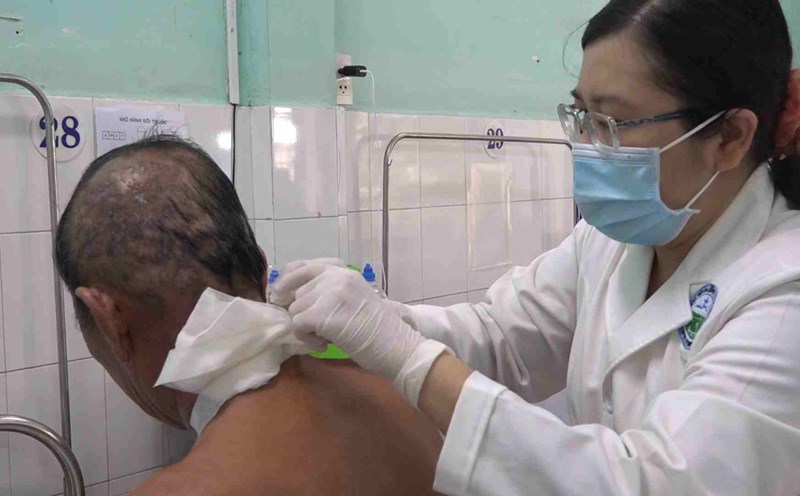Thu Duc City Hospital said that currently in the South, the rainy and hot weather is an ideal condition for infectious diseases such as shingles to break out and spread. This is a disease caused by the Varicella-Zoster virus, which is also the virus that causes chickenpox.
The shingles often go away on their own if properly cared for, but can also cause inflammation, neuropathy or pain after the shingles if treated incorrectly. Therefore, proper care is a decisive factor in the recovery process.
To properly care for patients, patients need to build a reasonable diet and increase resistance to recover. Eating lots of green vegetables and fruits rich in vitamins C, B6, B12 helps the skin recover. Add zinc to red meat, nuts, grains, beans... and lysine in fish, beans, cheese to fight viruses, support skin cell regeneration.
Limit eating fried, greasy foods; seafood that can easily cause allergies; alcohol, stimulants that cause immune degradation; foods that are too sweet, spicy, and spicy.
In addition, patients should maintain proper skin hygiene. Sanitize the affected area every day with saline, then gently dry.
No burping of water, no covering of wounds. The skin needs to be ventilated to heal quickly and avoid infection.
Patients also need to have a resting regimen to reduce stress. Get 7-8 hours of sleep per day, get to bed early 11pm.
Practicing yoga, meditation, or gentle activities helps relax the spirit and increase resistance. Avoid strenuous exercise that causes sweating because it can easily cause inflammation in the affected area.
Supportive treatment measures include applying cold compresses to painful skin to reduce swelling (using a clean towel, not applying stones directly to the skin). Follow your doctor's prescription, do not arbitrarily use folk remedies or oil with leaves of unknown origin.
If there are signs of high fever, severe pain, pustules, and undyed wounds, patients should go to medical facilities for timely examination and treatment.
Another important note is that shingles can spread if people around have never contracted chickenpox or have not been vaccinated. Therefore, do not share towels, clothes, blankets, or personal items with others. Limit close contact if the damaged skin is still wet or hollow.











